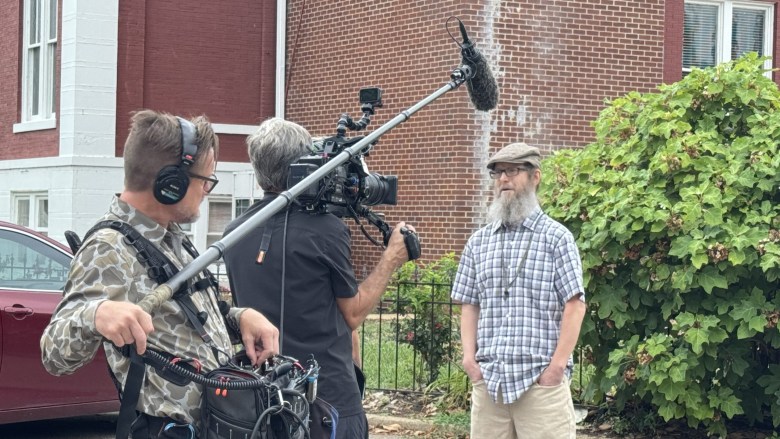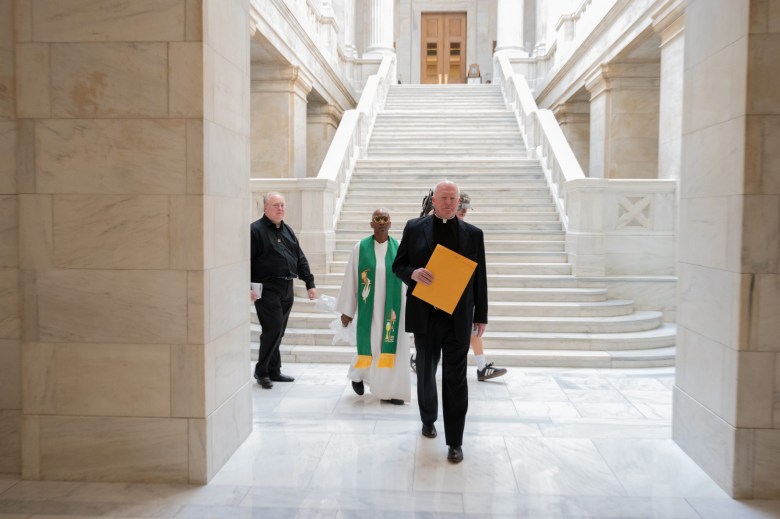The West Memphis Three are one step closer to receiving some answers that they believe will clear their reputations, more than three years after the Crittenden County Circuit Court rejected a plea for extra DNA testing and more than a year after the Arkansas Supreme Court overturned that ruling.
Friday morning’s hearing in Crittenden County Circuit Court went rather well and lasted less than ten minutes. Sonia Hagood, the prosecutor, presented the DNA testing order to Circuit Judge Tonya Alexander after it was signed by the lawyers for Damien Echols, Jason Baldwin, and Jessie Misskelley. Baldwin was present, but Echols and Misskelley were not, as they had requested to be excused.
Under a 2001 law that permits a person convicted of a crime to file a petition to vacate and set aside a verdict if scientific data, not available at the time of trial, demonstrates the petitioner’s true innocence, the men had long sought DNA testing of the evidence from their 1994 conviction. Now that the agreed order for today has been entered, the testing will begin.
The transportation of the material to be tested from West Memphis to the testing facility was the sole significant point of contention between the state and the defendants’ lawyers during the hearing. Hagood mentioned a courier, but Echols’ attorney Patrick Benca stated that FedEx would have to be used because there isn’t a third-party courier in the area that is independent enough to pick up the evidence. Hagood stated that she didn’t like using FedEx, but she didn’t explain why. (One of the lawyers claims that Hagood has never before objected to utilizing FedEx before today’s hearing.)
Alexander gave the parties instructions to resolve the transportation problem and notify the court. She gave the West Memphis police and the state ten working days to find the pertinent material, which Hagood said had already been finished months prior, and forward it to the testing company. Jeff Rosenzweig, who is defending Baldwin, stated that he will prepare a set of procedures and distribute them to the other parties when the parties appeared to reach a tentative agreement on how to present the evidence.
Following the hearing, Rosenzweig told the Arkansas Times that the problem is maintaining the evidence’s chain of custody and putting safeguards in place.
As of this writing, the order has not been put into CourtConnect and was not read into the record. It will be entered before the end of the day, according to Alexander.
The findings of the DNA test will probably determine what happens next. The state might theoretically file charges against whoever left DNA at the scene, provided that the testing finds no evidence connecting Echols, Baldwin, or Misskelley. However, it’s uncertain if they would since doing so would essentially amount to the state acknowledging that the West Memphis Three were wrongfully convicted 31 years ago and imprisoned for 17 years for a crime they didn’t commit.
Even though the West Memphis Three case is widely known, some background information is helpful in order to understand the procedural problems that hindered this procedure and necessitated the Supreme Court’s intervention.
In May 1993, the bodies of three 8-year-old boys—Christopher Byers, Michael Moore, and Steven Branch—were found in a muddy creek behind West Memphis’ Robin Hood Hills. Police soon focused on Echols, an 18-year-old high school dropout who like heavy metal music, as demonic hysteria swept through Arkansas and the country.
Jessie Misskelley Jr., a 16-year-old with an IQ of 72, was coerced by West Memphis police into making a dubious confession that implicated Echols and Jason Baldwin, 17. The three teens were then accused with three charges of capital murder each by the prosecution. Because he was a minor at the time of the murders, Misskelley was found guilty after a separate trial and given a life sentence in February 1994. The next month, Baldwin and Echols were tried jointly and found guilty. Echols was given the death penalty, while Baldwin, who was also a teenager at the time of the killings, was given a life sentence.
Attempts to establish the West Memphis Three’s innocence continued for years. The Arkansas Supreme Court ultimately overturned and remanded a lower court ruling that rejected Echols’ request for a new trial based on DNA evidence in 2010. However, the three men came to an arrangement with prosecutors in 2011 that would release them from prison before a hearing on Echols’ petition could take place.
Each defendant signed an Alford plea, which is a legal procedure that permits an individual to retain his innocence while admitting that the state has sufficient evidence to convict him in the event that the case proceeded to trial. Echols, Baldwin, and Misskelley were released from jail after entering Alford pleas and receiving sentences of time served plus an extra ten years suspended.
Echols started corresponding with Scott Ellington, the prosecutor for the judicial district that encompasses Crittenden County, in 2020. Echols talked on the potential use of a recently created wet vacuum-based collection technique utilizing a device known as anM-Vac to do further DNA testing on case-related evidence. Ellington was replaced as prosecutor by Keith Chrestman in 2021, and he stated that Echols would need to ask the court for authorization to do the DNA testing.
Echols submitted a petition in January 2022 in accordance with Arkansas’ DNA and other testing law, Act 1780 of 2001. He specifically wanted the ligatures used to bind the murder victims to be tested for M-Vac. He maintained that more accurate testing now could help identify the real killers because the ligatures had yielded valuable DNA evidence in previous tests. Echols pointed out that Act 1780 did not need a person to be detained in order to petition the court for testing, but the state argued that he was not entitled to relief because he was no longer incarcerated.
Echols’ petition was denied by the circuit court, which concurred with the state. Because Echols was not in custody when he submitted the petition, it was determined that he was not entitled to relief and that the circuit court lacked jurisdiction to hear the case.
After Echols filed an appeal, the Arkansas Supreme Court overturned the circuit court’s ruling in April 2024.
Additionally, the Supreme Court ruled that the circuit court had misinterpreted Act 1780. Four justices concurred with Echols’ contention that the Act permits anybody convicted of a crime to seek relief through DNA testing and does not require the petitioner to be in detention at the time of the petition. Three justices—Barbara Webb, Shawn Womack, and special justice Marcia Hearnsberger—dissented, claiming that other evidence presented during the trial supported the guilty verdict and that DNA testing would not establish Echols’ innocence.
It’s dragon-slaying time!
The Arkansas Times, which relentlessly defends the fundamental rights and liberties in our community, stands as a light of truth in an era when critical voices are being silenced more and more. Our commitment to provide uncompromising journalism has never been more important, especially with Arkansas in the center of a broad culture war that is impacting our libraries, schools, and public conversation. We can’t accomplish our goals of defeating dragons and holding those in positions of authority responsible alone. You can guarantee that independent journalism in Arkansas not only endures but flourishes by making a contribution today. We can join the fight and make a difference together.







